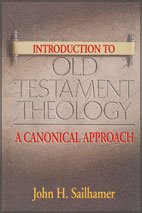While going through Sailhamer (phenomenal book—more on that in later posts) I was reading through different theories of biblical theology throughout the ages. One of the methods he described was by a Jewish rabbi named Rashi (about AD 1100). He devoted his life to provide a defense against Christianized interpretations of the OT by focusing on Scripture’s true, historical meaning. In doing this Rashi bucked the current trends of even his contemporary rabbis by keeping away from many messianic expectations of the Targums in favor of a “literal” reading of the OT.
I am firmly entrenched in my understanding that true communication happens when the receptor understands the intent of the speaker—or in the case of written communication the reader understands the intent of the author. Thus, finding authorial intent is at the core of communication. The alternative to that is reader-response criticism where I simply can insert meaning into a text or message that was not intended by the author. If that is the way the world worked, communication would not be possible.
One of my biggest fears in the study of exegesis is that I will come across a Jewish scholar versed in the Scriptures who calls out my NT writers for violating the very essence of communication—authorial intent. My biggest fear is that I would have nothing to answer him. A case in point example is from a project I turned in a few years ago in a class on the use of the OT by the author of Hebrews.
Hebrews 10:4-10 For it is impossible for the blood of bulls and goats to take away sins. 5 Therefore, as He was coming into the world, He said: You did not want sacrifice and offering, but You prepared a body for Me. 6 You did not delight in whole burnt offerings and sin offerings. 7 Then I said, "See, I have come-- it is written about Me in the volume of the scroll-- to do Your will, O God!"a 8 After He says above, You did not desire or delight in sacrifices and offerings, whole burnt offerings and sin offerings, (which are offered according to the law), 9 He then says, See, I have come to do Your will.1 He takes away the first to establish the second. 10 By this will, we have been sanctified through the offering of the body of Jesus Christ once and for all.
The author’s argument is clear. Animal sacrifices do not please God by taking away sin—only the one sacrifice of the body of Christ does that. So the author puts the words of Psalm 40 into the mouth of Christ, “You did not want sacrifice and offering, but You prepared a body for Me.” This is a clear reference to His incarnation since he closes this section in verse 10 with the fact that we have been sanctified through the offering of that body. Where all of this gets sticky is when we go back to Psalm 40 and look at the quotation in its original setting.
Psalm 40:6-8 You do not delight in sacrifice and offering; You open my ears to listen. You do not ask for a whole burnt offering or a sin offering. 7 Then I said, "See, I have come; it is written about me in the volume of the scroll. 8 I delight to do Your will, my God; Your instruction resides within me."
Notice, the phrase “you prepared a body for me” is not there. Rather, the OT passage reads “You have opened my ears to listen.” I actually think the New Living Translation’s take on this passage is the best.
NLT Psalm 40:6 6 You take no delight in sacrifices or offerings. Now that you have made me listen, I finally understand -- you don't require burnt offerings or sin offerings.
Both of these English translations naturally use the Hebrew as their original. The author of Hebrews, however, never used the Hebrew but quotes all of his OT passages from the Septuagint.
LXX Psalm 40:6 Sacrifice and offering you did not want; but ears you have prepared for me: whole burnt offering and sacrifice for sin you did not require.
The LXX translators make one significant change to the Hebrew. The Hebrew word used for “open” [carah] usually is translated as “dig” or “excavate” depending on context. Of course you open ears, you don’t excavate them (you’ve just got to love the vividness of Hebrew: you excavated my ears :)). The Greek translators go with a good dynamic equivalent and use the word “prepare” [katartizo]. The word is different, but the sense is still the same.
Hebrew OT: You opened my ears to understand that You don’t desire burnt offerings.
LXX: You prepared my ears to understand that You don’t desire burnt offerings.
Now here comes the author of Hebrews. It is no longer David who speaks but Christ. He keeps the same word for “prepare” [katarizo] and seems to go with a metonymy idea with ear and body. The words are the same (except for ear and body) but the MEANING is completely different.
Hebrew OT: Sacrifice and offering You have not desired; ears You have opened for me.
MEANING: You have made me, David, listen and I understand that you don’t desire burnt offerings.
LXX: Sacrifice and offering You have not desired, ears You have prepared for me. MEANING: You have prepared my (David’s) ears to understand that You don’t desire burn offerings.
Author of Hebrews: Sacrifice and offering You have not desired; a body you have prepared for me.
MEANING: Because you take no pleasure in burn sacrifices you have prepared for Me (Jesus) a body when I came into this world with which I will do Your will and sanctify Your own.
I am sure this would be one of those passages that Rashi would have vigorously debated in AD 1100 to show that the authors of the NT did violence to the OT context by ignoring the authorial intent. In previous posts I have already noted how Christ claimed to be the fulfillment of the OT. So that leaves us with two hard questions.
Question 1: In this passage specifically, what does it mean that Christ fulfills the OT Scriptures? Since my faith rests on the fact that I believe the NT authors legitimately use the OT, in what way are they legitimate?
Option A: There is no resolution. The NT authors did what they did because they were guided by the Holy Spirit to do so and we have no right to question their methods.
Option B: There is a historical/grammatical/literal resolution to this passage that we should have seen in the OT.
Option C: There is a historical/grammatical/literal resolution to this passage that we would have never guessed by studying the OT alone. However, now that we have the NT we have a historical/grammatical/literal resolution that was not there before.
Option D: There is a non-historical/grammatical/literal resolution that is still a valid resolution (perhaps in light of a fuller canon and/or a salvation historical interpretation).
Question 2: Am I allowed to do what the author of Hebrews just did in this passage when I interpret the OT?
If Option A is the resolution: The NT author’s experience was one-of-a-kind and non-reduplicatable. I have to play by different rules than the NT authors and have nothing to learn from them. I am stuck using a historical/grammatical/literal method even though they are not. Not only that, but Paul mocks me in the process accusing me of using the method of those whose hearts are still veiled.
If Option B is the resolution: I would never have guessed that this passage speaks of Christ with just he OT and a historical/grammatical/literal interpretation. Thus, resolution B is impossible to reduplicate.
If Option C is the resolution: I can only interpret OT passages that are “re-interpreted” in the NT and find Christ in these passages. Passages that are not mentioned in the NT as specifically Christological must be interpreted apart from the Christ-event. Thus, for example, Psalm 40 must be preached from the OT like the author of Hebrews does, but I can take my message on Psalm 19 and preach it Saturday morning at the Synagogue and Sunday morning in church. Or again, the Passover narrative must be preached with Christ as our passover lamb, but Samson and Delilah has nothing to do with Jesus.
If Option D is the resolution: As you can probably guess, this is where I find myself going. If I can figure out what the NT authors did, I can reduplicate it. Goldsworthy suggested a salvation history approach. That really doesn’t work in this passage at all. Canonical might work but I have to finish Sailhamer first.
As always, feel free to leave comments and help me think!
Subscribe to:
Post Comments (Atom)




2 comments:
Ah, yes, good old Heb. 10:5! :)
Excellent job laying out the options. There may be other options. I don't know of any, but don't close the door on that possibility.
Given the options you gave, you know I would definitely go with the last. I know it sounds trite, and it's somewhat undefined, but I've argued for a Christocentric hermeneutic. That is, what the NT authors did was see everything in light of Christ. They did not necessarily reject the grammatical-historical meaning of the text, they just understood that the text was primarily given to them to see Christ.
I remember sitting in a class (think you were there) a few years ago. We read through "Apostolic Exegesis" in which the author said, "Here's what the NT authors do with the OT." We said, "Yes! That's it." But then the books conclusion was basically, "Yeah, but we're not allowed to do that!" It was so frustrating. If we can't learn exegesis from Christ and the apostles, and we can't learn it from the church fathers (remember, they were too "allegorical"), and we can't learn it from the reformers because they just blindly followed the fathers, then who are we left with? The dispensationalists?! Yikes!
All that to say, my vote is for the last option. See Christ everywhere!
Nice brief and this mail helped me alot in my college assignement. Thanks you for your information.
Post a Comment